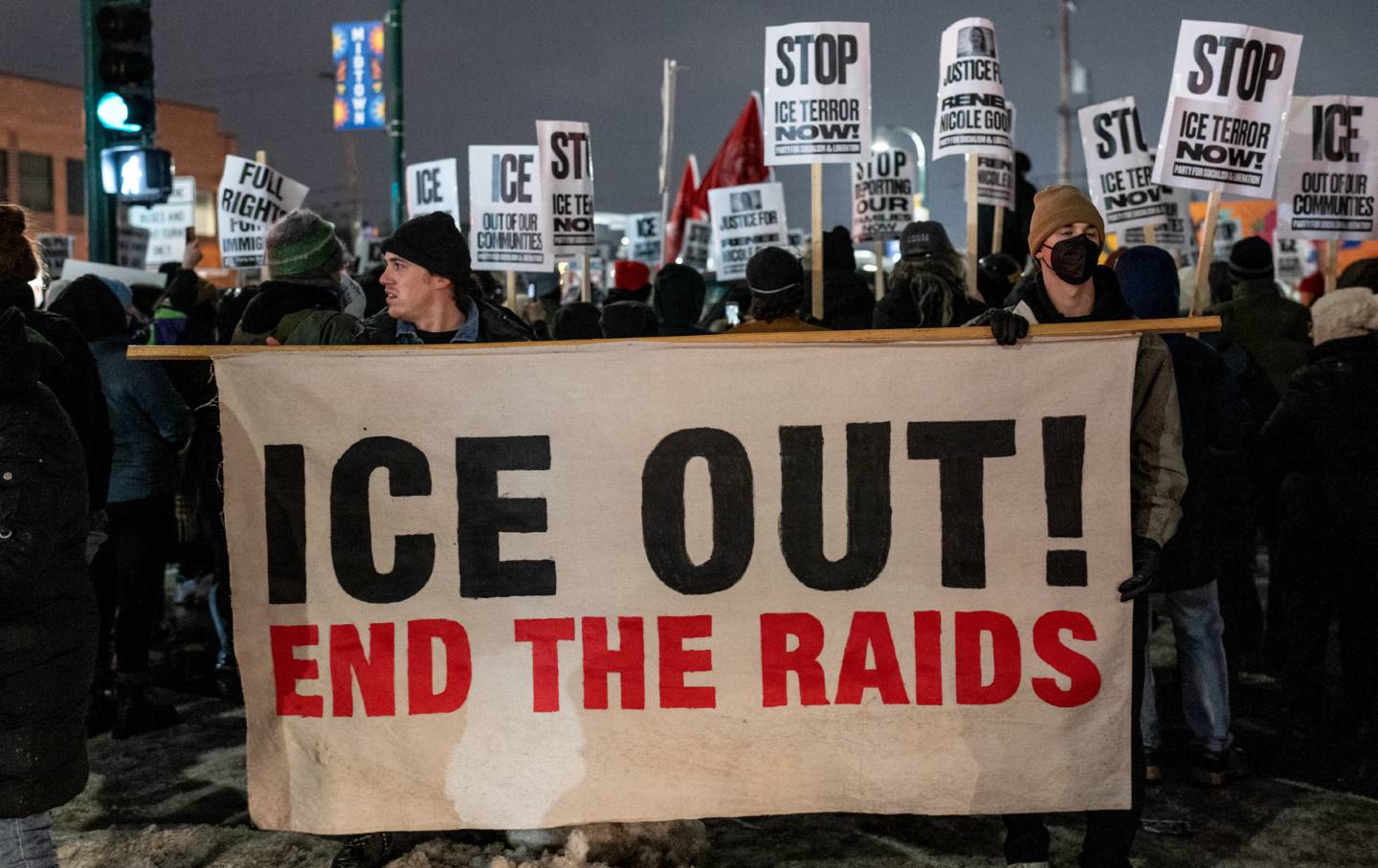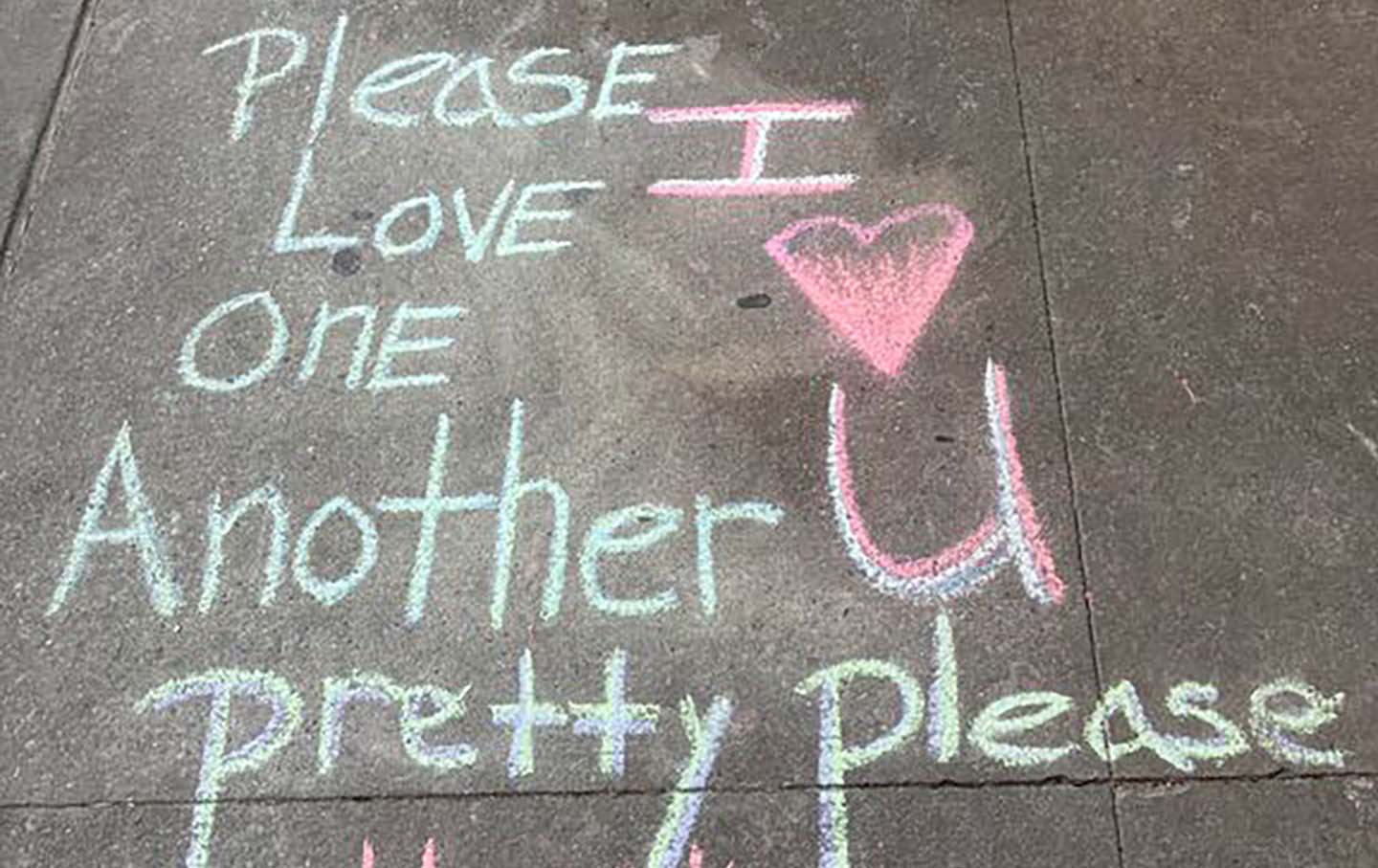Republicans Are in Damage Control Mode Over Abortion
Arizona’s 1864 abortion law has local party leaders flailing to avoid alienating voters.

Arizona Republican Senate candidate Kari Lake speaks with reporters after leaving the office of Senate minority leader Mitch McConnell on Capitol Hill.
(Kent Nishimura / Getty Images)With abortion now at the forefront of the election campaign, Arizona Republicans spent the week tying themselves in knots in an effort to appease both those who want a total abortion ban, of the kind recently reinstated by the state’s Supreme Court, and those who want a “moderate” 15-week ban. The result, all too predictably, was chaos.
Kari Lake, who unsuccessfully ran for the governorship in 2022 on a Trumpian platform of election denialism and harsh anti-immigrant sentiments and is now the front-runner to become the GOP’s candidate for the upcoming US Senate race, couldn’t work out which side of the issue she was on. The television news anchor cum politician, who once supported banning abortion pills and reinstating the 1864 territorial-era law that bars all abortions and imprisons abortion providers, now doesn’t support banning all abortions. Instead, she told NBC, she favors an Arizona law signed by Governor Ducey in 2022 that, if it ends up replacing the reinstated territorial law, would ban abortions after 15 weeks of pregnancy.
Lake’s newly moderate positions holds, except when it doesn’t. Speaking to a newspaper in Idaho—a state that has an even more extreme abortion ban in place, so extreme that US Supreme Court Chief Justice Roberts and Justice Amy Coney Barrett might actually vote with the liberals in holding it to be unconstitutional—she suggested that she does, indeed, support the draconian 1864 law. “Unfortunately,” she said, “the people running our state have said we’re not going to enforce it.”
Meanwhile, in the state legislature, a majority of Republicans spent a week blocking efforts to overturn the law, which is slated to kick in in early June unless it is repealed before then. Behind the scenes, many also plotted ways to sabotage the abortion rights initiative heading to the ballot this November. A leaked memo showed elected officials looking for ways to qualify multiple different “abortion rights” initiatives, most of which wouldn’t genuinely protect abortion access, and would in fact add an array of restrictions around abortion into the state Constitution, in order to dilute support for the Arizona for Access initiative. That initiative, which already has far more than enough signatures to qualify for the ballot, actually would enshrine abortion rights into the state Constitution. Abortion rights advocates will be going all out in the coming months to educate voters about it and bring them out to the polls come November.
If the Supreme Court ruling takes effect, Arizona will join states such as Texas and Idaho in imposing a near-total and harshly punitive abortion ban, against the wishes of a vast majority of its voters. So on Wednesday of this week, a coalition of three moderate Republicans—Timothy Dunn, Matt Gress, and Justin Wilmeth—joined Democrats in the House to finally pass that repeal of the territorial law. It has now been sent over to the Senate, where Republicans only have a two-seat majority—and where two GOP senators have already indicated that they want to repeal the legislation and replace it with a 15-week limit on abortion. It is more than likely that a repeal bill will soon head to Governor Katie Hobbs’s desk for her signature.
None of this bodes well for the GOP. Whether the state legislature gets its act together to repeal the 1864 law or not, at this point the GOP owns the mess. The party is at war with itself over whether and how to limit abortion access, pragmatists who can read the political tea leaves versus purists who want to push for ever-more-restrictive abortion policies.
The legislative fix pushed to nullify the 1864 law—a fix that should have been a no-brainer for the GOP to adopt—will pass, if it does pass, only because a few sensibly moderate Republicans were willing to break with the majority of their party colleagues and vote with a united Democratic caucus in favor of repeal. Even then, it’s hardly a dream bill for abortion rights advocates, failing to include exceptions for victims of rape or incest who require abortions after the 15th week of pregnancy.
Moreover, the repeal won’t kick in for 90 days, meaning there will be a gap of several weeks between the law kicking in and the repeal taking effect. During those weeks, if abortion is temporarily forbidden in Arizona, the Democrats will certainly make as much political hay as possible—and many Arizona providers, who, as a result of legislation being fast-tracked through the California legislature will soon be allowed to practice across the state line, will likely temporarily shift their business to border towns on the California side. As a result, while Republicans try to shift the conversation onto other issues, Democrats will have a golden opportunity for months on end to paint the GOP as extremists unconcerned about driving women out of state to seek basic medical care.
Meanwhile, on the right, there are growing rumblings of discontent from the anti-choice voters who make up the GOP base, who worry that they’re now being sold out by politicians more interested in favorable poll numbers than in ideological purity or consistency around abortion. Anti-choice legislators slammed their three colleagues for voting with the Democrats to repeal the 1864 law, and shortly after the vote Gress was removed from his position on the House Appropriations Committee. House Speaker Ben Toma wrote that he was “deeply disappointed” in the outcome. Susan B. Anthony Pro-Life America President Marjorie Dannenfelser put out a statement mourning the babies who would be aborted after repeal of “Arizona’s strongest pro-life law.”
Barely six months out from the election, Arizona’s abortion battles have heated up to the boiling point. For the Republicans, the timing couldn’t have been worse.








